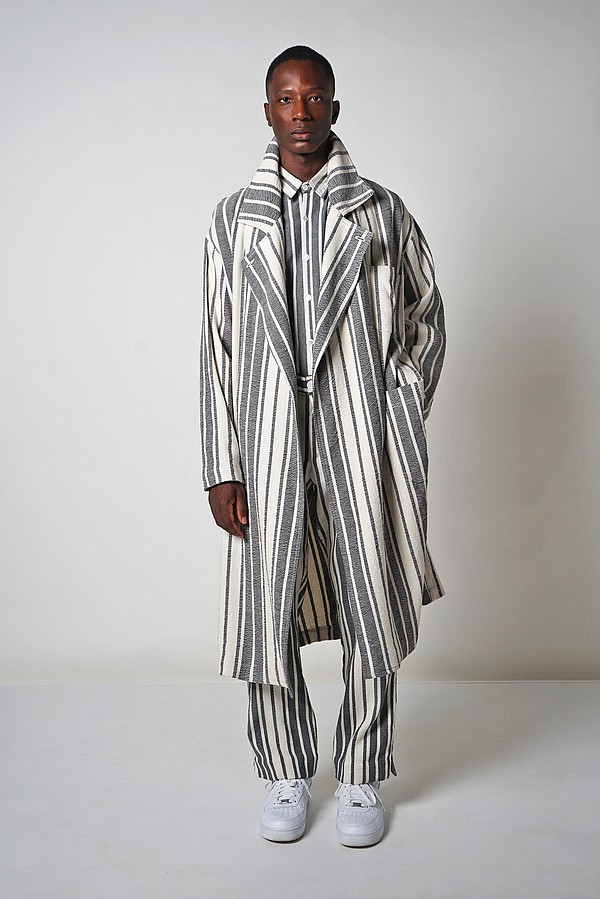MANUFACTURING
Sustainability Continues to Drive the Apparel Industry
As bricks-and-mortar businesses slowly open under new COVID-19 safety guidelines, e-commerce popularity has increased. During this time, shoppers gained more freedom to research brand commitment to sustainability, according to Marshal Cohen, chief industry adviser of the data and analytics company The NPD Group, Inc.
“We’ve had more time to investigate brands and make decisions. The focus on sustainability has shifted since COVID-19, which is understandable as we navigate our way through what the heck is going on,” Cohen explained. “People have the time to investigate these brands and what they stand for.”
While consumer focus has been on necessities and sustainable goods might have been placed on the back burner, more-responsible goods remain part of the recipe.
In a study performed by technology company CGS, which released its “2020 Retail and Sustainability Survey” last month, 51 percent of the 2,000 consumers ages 18–65+ surveyed view sustainability as important. Despite a decline from a 2019 percentage of 68 percent, Paul Magel, president of the business-applications division at CGS, attributes it to rising unemployment during the first half of the year.
“This is, no doubt, an economic factor of the pandemic, given the increased unemployment and underemployment that began in late February,” he said. “Also, the pandemic has caused a shift in priorities for consumers. In such situations as a pandemic, the Maslow hierarchy of needs becomes more important. The physical and emotional safety of consumers will impact the priority of the sustainability movement.”
With new approaches to a post-COVID-19 world, consumers reported that a large portion of their shopping will be performed online. In addition to the 45 percent of those surveyed who will return to shopping in stores, 41 percent will only shop online, and 14 percent will choose curbside pickup, with 56 percent willing to spend up to 25 percent more for sustainable offerings. This trend is good news for sustainable brands and manufacturers.
One such brand is San Francisco–based Tonlé, which produces its garments in an ethically managed facility in Cambodia.
“It was really rough on the wholesale side. Overall, our e-commerce sales have been doing quite well, but 80 percent of our business is wholesale,” explained creative director and founder Rachel Faller, who reported that e-commerce doubled while traffic to her site tripled. “We get a lot of people engaging us with questions on social media. People come to us because they know that we are doing things differently.”
Shopping Tonlé products provides a bright spot for consumers, according to Faller. Her customers find a sense of contributing to the greater good by purchasing her pieces, which are made by a small group of sewers who use dead stock, cutaways and smaller scraps to create Tonlé clothing.
“People are looking for something that gives them hope. There is a lot of depressing news. Even within the fashion industry, it’s been negative—how factory workers are being treated and brands not paying, while billionaires are making a lot of money while people are suffering,” Faller said. “With Tonlé and other sustainable brands, it gives you a relief and ability to contribute to something that is positive.”
For Marrakech's Marrakshi Life, which is handwoven in Northern Africa using local cotton, founder Randall Bachner reveals that while consumers are spending less overall, he sees a push for sustainable goods, particularly in the ethical segment.
“People are more concerned about how things are made and are paying attention to quality as opposed to big manufactured goods. I believe there is an emphasis on supporting brands with positive values that are focusing on pushing out quality. People are spending less but investing in ethical and sustainable brands that do well and look great,” Bachner said. “Made-to-order sustainable clothes has been a story our audience loves.”
Citing the June 2020 “Organic Industry Survey” by the Organic Trade Association, Lori Wyman, the Global Organic Textile Standard representative for North America, noted that in 2019 sales of organic food and non-food in the United States totaled a record $55.1 billion—an increase of 5 percent over 2018. While there might have been a slowdown for some goods during the COVID-19 pandemic, organic-produce sales have risen more than 20 percent during spring 2020, notable trend considering how apparel-production practices tend to follow suit after a large consumer response in the food industry.
“GOTS has had a steady rise in the growth of companies becoming certified over the last four months,” Wyman said. “The spa-goods sector in particular has seen steady growth. I believe it’s due to the nesting instincts people are having as they isolate at home.”
Post-pandemic, Cohen feels that the conversation regarding sustainability—after reverting back slightly—will be able to continue on a path toward a more-responsible industry, yet there will be a change in this discussion.
“A brand no longer needs to tell us what it stands for; a brand has to tell us what it’s doing,” Cohen said. “The consumer has to prove to the brands that this means something to them. Not just another marketing tool.”
*A previous version of this story misidentified Marrakshi Life as being headquartered in New York City. The brand is based in Marrakech.






















